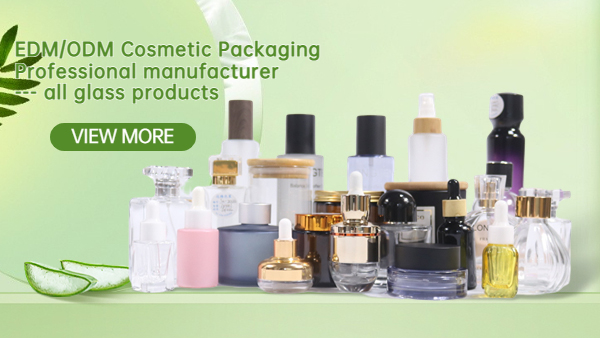Transitioning Towards Eco-Friendly Solutions
Date: October 18, 2023
Cosmetic packaging is undergoing a significant transformation with a growing emphasis on sustainability and eco-friendly alternatives. As the world acknowledges the pressing need to reduce plastic usage, glass packaging is gaining momentum as a viable solution for the cosmetics industry. This article explores the advancements and potential benefits of glass packaging, highlighting its positive impact on the environment.
Plastic packaging has long been the preferred choice for cosmetic products due to its versatility, durability, and cost-effectiveness. However, the environmental consequences associated with plastic waste have led to a paradigm shift within the industry. Companies are now actively seeking out alternatives that minimize the environmental footprint of their packaging.
Glass packaging, with its timeless appeal and recyclability, presents itself as an attractive alternative. Many cosmetic brands have started to incorporate glass into their packaging lineup, recognizing its superior sustainability credentials. Unlike plastic, glass is infinitely recyclable, reducing the burden of waste accumulation and ensuring a closed-loop life cycle for the packaging materials.
One of the primary advantages of glass packaging is its ability to preserve product integrity. Glass is non-reactive and impermeable, providing an excellent barrier against external elements such as air, moisture, and UV light. This property helps protect the quality and efficacy of cosmetic formulations, prolonging their shelf life without the need for additional preservatives.
Moreover, glass packaging offers a luxurious aesthetic that appeals to consumers. Its transparency allows customers to visually appreciate the product they are purchasing, enhancing their overall experience. Glass also lends itself well to customization, enabling brands to create unique designs and differentiate themselves in a crowded market.
While glass packaging provides numerous benefits, it is important to address its potential drawbacks. Glass is more fragile than plastic, making it susceptible to breakage during transportation or handling. However, advancements in packaging design and manufacturing techniques have significantly improved the durability and strength of glass containers. Additionally, some manufacturers have introduced protective coatings or cushioning materials to mitigate the risk of breakage.
To further promote sustainable packaging practices, industry stakeholders are actively exploring innovative solutions. For example, some companies are experimenting with bio-based or biodegradable plastic alternatives to meet the demand for eco-friendly options. These alternative materials aim to strike a balance between durability, functionality, and environmental impact.
In conclusion, the cosmetic industry is at the forefront of embracing sustainable packaging practices, with glass packaging emerging as a promising alternative to traditional plastic packaging. Its recyclability, product integrity preservation, and appeal to consumers make it an excellent choice for cosmetic brands looking to enhance their eco-friendly credentials. As efforts continue to reduce plastic waste, the shift towards glass packaging marks a positive step towards a more sustainable future in the cosmetics industry.
Post time: Oct-18-2023


